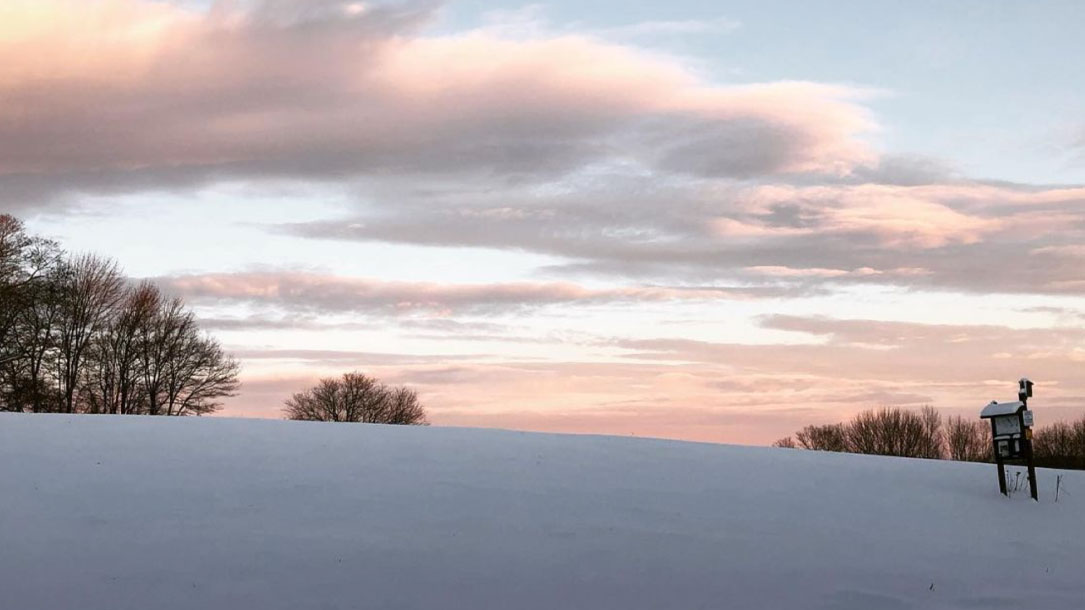
Climate change informational talks for all ages
Joshua’s Trust and the Connecticut Museum of Natural History co-sponsored an informational session given by Dr. Anji Seth. Temperatures of 70-degrees on Jan. 12 felt wonderful, but left many wondering if extremes in temperature are the new normal.
“We are doing these three sessions because many are concerned and want to know what they can do locally. We want to ameliorate our climate anxiety,” Nancy Silander, JT trustee, said…
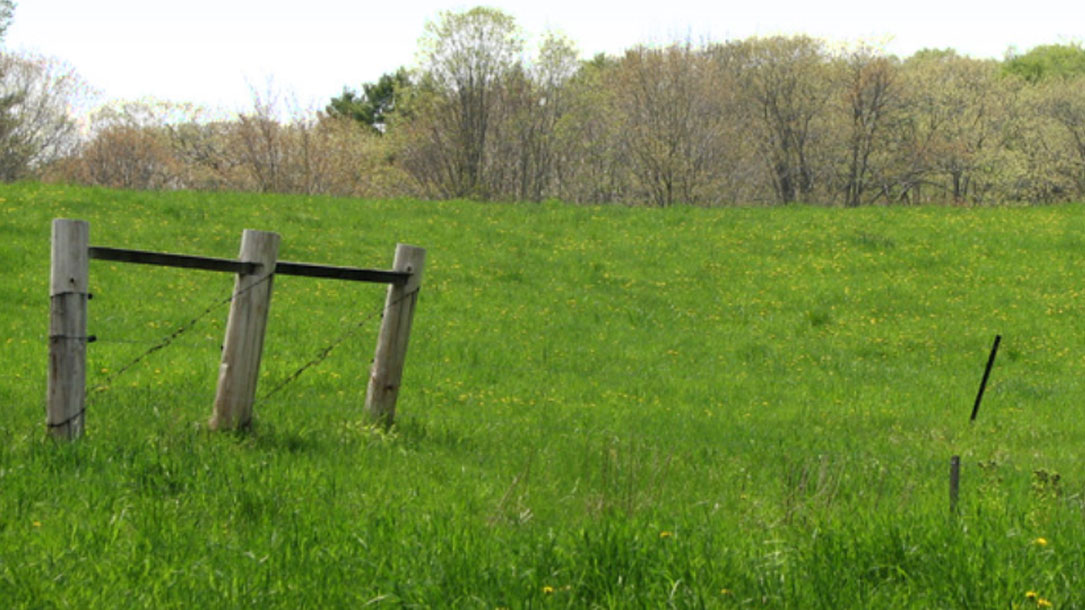
Freeport Conservation Trust
“Freeport Conservation Trust is a grass-roots land trust dedicated to sharing Freeport’s special natural places, valued for recreation, wildlife habitat, clean water, farming, forestry and scenic beauty. Since 1977, our volunteers and staff have partnered with landowners, neighbors, local businesses, the Town of Freeport, and other groups to conserve and connect more than 1,500 acres of open space and nearly 20 miles of public trails. From ridgelines to ravines and islands to woodlands, together, we’re preserving the places you love…”
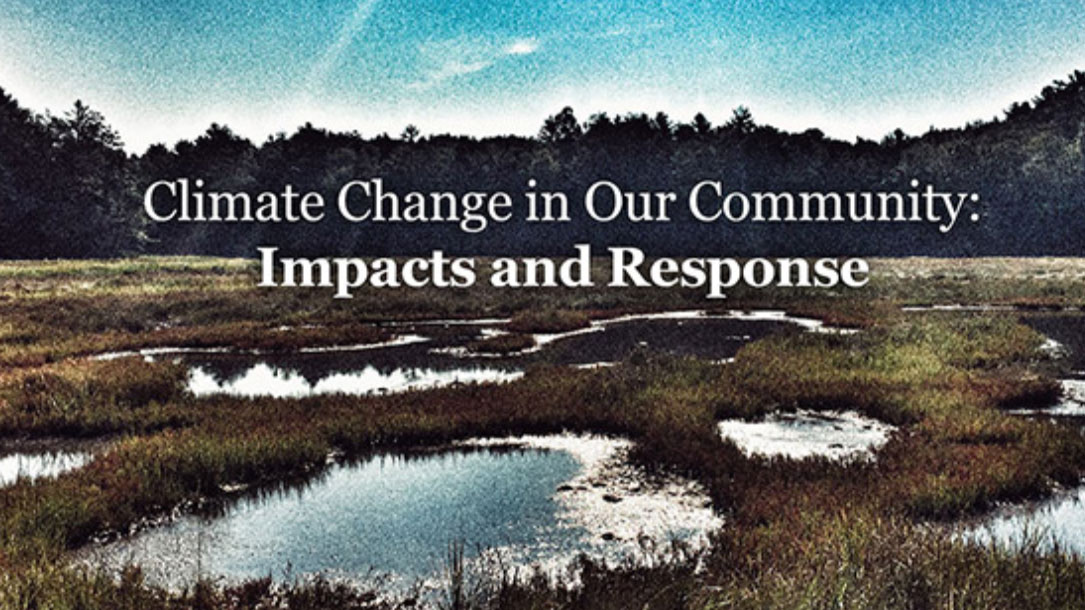
Climate change in our community: Impacts and response
In January, Freeport Conservation Trust partnered with a local arts group, Freeport Arts & Cultural Alliance, and local contributors, for a presentation of writing and art from the book A Dangerous New World: Maine Voices on the Climate Crisis. They then came together to discuss how people felt climate change is impacting them and what they can do about it. Partnering like this, with people who are local, can be very powerful.
Last year, they hosted a conversation at their annual meeting about how the impacts of climate change are being felt locally. They stated on their website:
“Casco Bay is warmer, the sea level is rising, and annual precipitation and extreme weather events have increased. It is critical that our community understands the impacts of climate change and takes steps to respond.”
Check out the presentation and how they related it to what people know and care about.
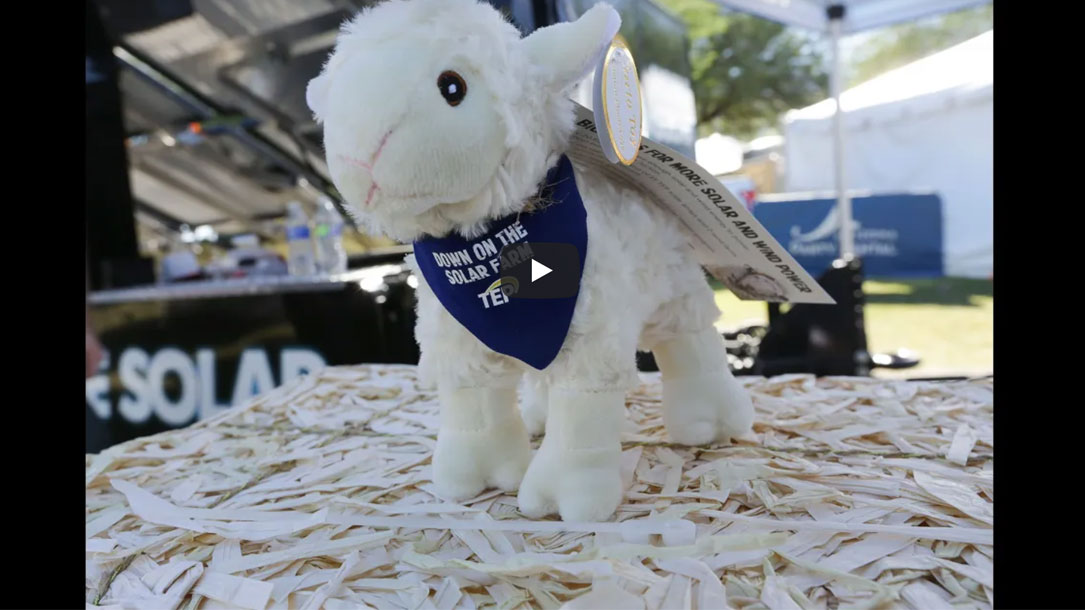
Mrs. Green is happy…
A flock of sheep chews away the weeds that grow underneath one of Tucson Electric Power’s (TEP) solar arrays instead of lawnmowers, spray, or weed trimmers, demonstrating one way TEP supports eco-friendly practices.
“To make sure our large solar array gets plenty of sun, we can’t let the weeds grow too high. That’s where the sheep come in,” said Ericca Suarez, a Technical Specialist in Renewable Energy. “It really is more sustainable to use the sheep.” Rancher Rusty Cocke manages the herd to keep the panels productive while preventing damage to the 1,200-acre site.
Learn more about the programs, sustainable practices and powerful partnerships fostered by Tucson Electric Power in the Tucson Electric Power Podcast Series.
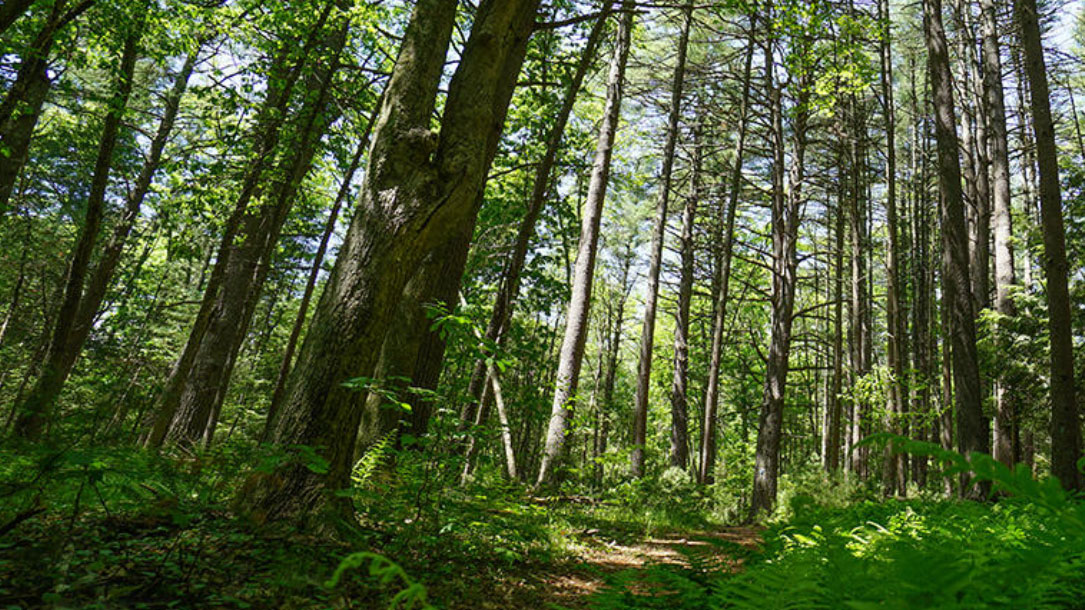
Capturing carbon in Mass Audubon forests
“Mass Audubon is committed to fighting climate change through conservation, advocacy, and education. And we are always looking for innovative ways to make a real and lasting impact. Our recent entry into the California Air Resources Board (CARB) carbon offset market is a prime example.
Establishing a price on carbon is an effective way to harness economic pressure to force carbon emissions reductions, but no policy has yet been implemented at the federal level. The best model is California’s comprehensive carbon emissions reduction campaign, which includes a cap-and-trade program for industries…”
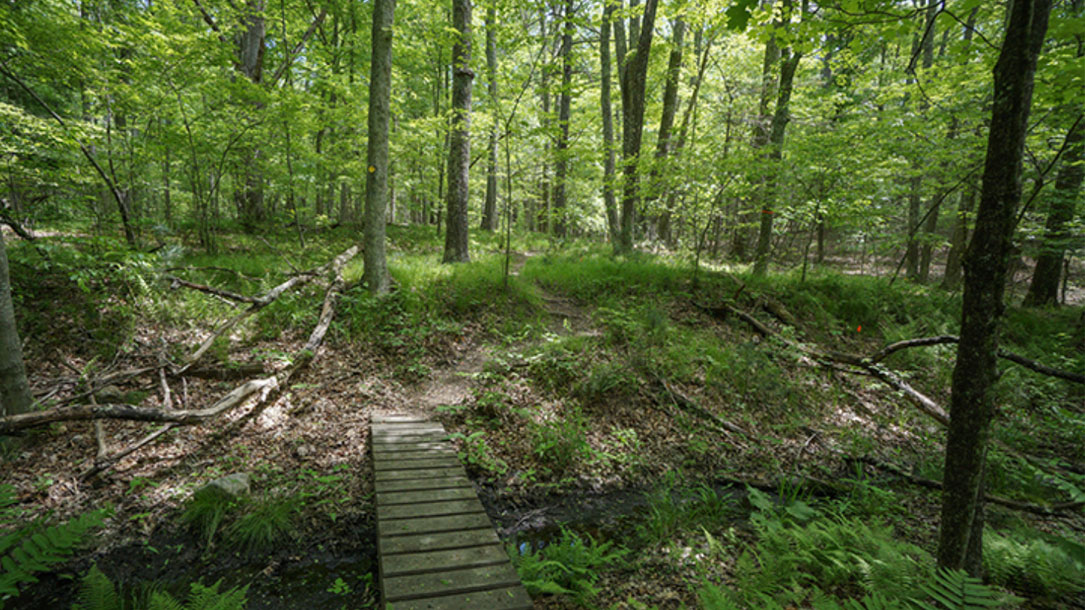
The role of land conservation in fighting climate change
At Mass Audubon, [their] land conservation strategy is directly linked to climate change mitigation and adaptation. As the largest private land owner in Massachusetts with more than 38,000 acres protected, [they] know how critical land conservation and effective land management is in the age of climate change.
[Their] recent entry in the California Air Resources Board (CARB) carbon offset market ensures that 10,000 acres of forested land will be protected for the next 100 years, ensuring the carbon stored in this critical landscape remains there…
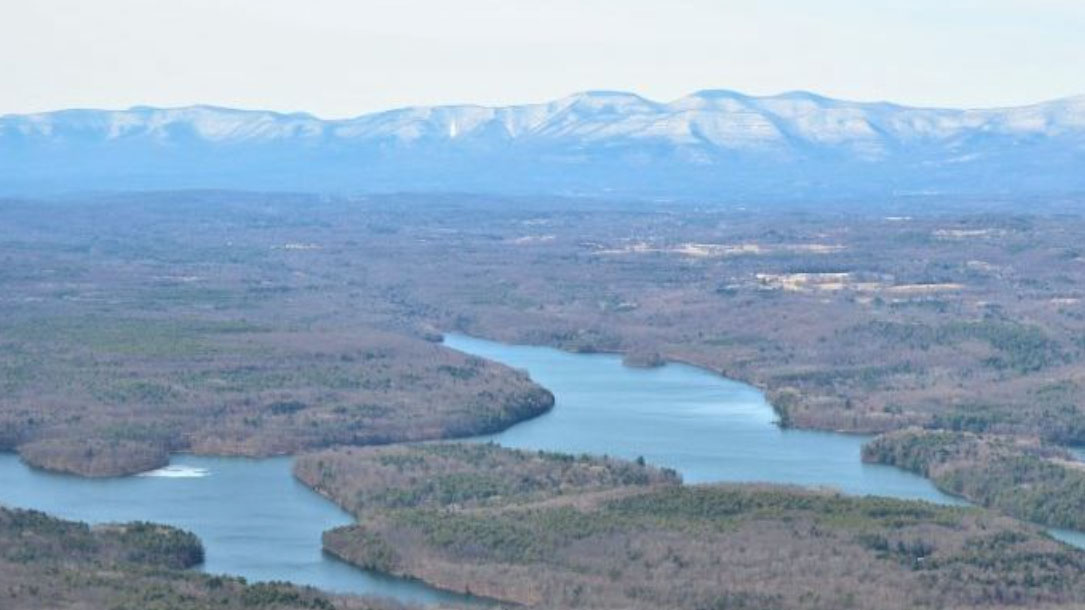
Partnering with a local city to sell carbon credits
Located in New York State, Mohawk Hudson Land Conservancy is working to slow down climate change in partnership with The Nature Conservancy and the City of Albany.
The Albany Water Board will receive funding from the sale of carbon credits. The Nature Conservancy expects this revenue to surpass one million dollars over the next ten years, which the Water Board will direct toward the implementation of the Sustainable Forest Management Plan, watershed management, and Water Board priorities.
As outlined in the Plan, the Albany Water Board has entered into a Conservation Easement with the Mohawk Hudson Land Conservancy…

Community, woodlands, and climate change discussions
One of the ways to help motivate people to slow down climate change is to help them understand the impacts on the places they love. Notice how welcoming this invitation and event is. Here is their announcement:
“Are you a woodland owner? Get together with other woodland owners and natural resource professionals to discuss the future of Connecticut’s forests. Andrea Urbano, a Service Forester with CT Department of Energy and Environmental Protection, will discuss what changes we can expect to see in Connecticut’s forests as a result of climate change, and how these changes interact with other threats to our forests.
We will also discuss what we can do to help create resilient forests through the upcoming changes. Bring your questions and concerns about your woodland. Resources for further action will be provided, including information on cost-sharing opportunities for land management practices. Time for snacks and networking will round out the evening…”
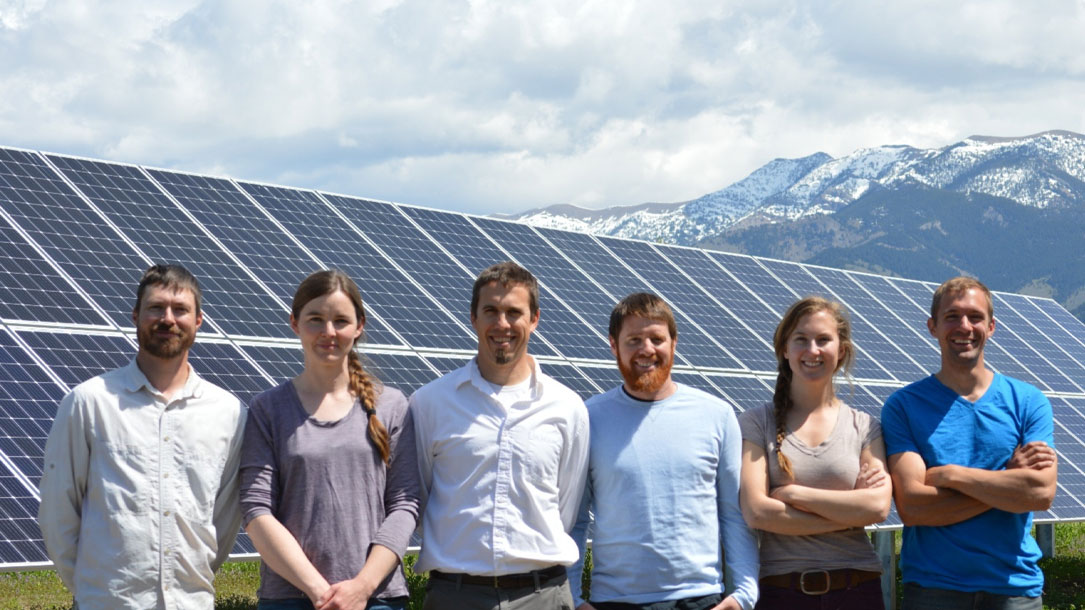
About OnSite Energy
We strongly believe in the infinite resource of the sun and the reliability of solar electric systems for our daily energy needs. For over a decade we have been advocating solar electric technologies to Montanans through our own projects, community outreach, and legislative efforts. Our goal is to empower our local and regional community members to choose a future of clean, renewable solar energy for their homes and businesses that benefits our natural environment, our future generations, and our state’s economy.
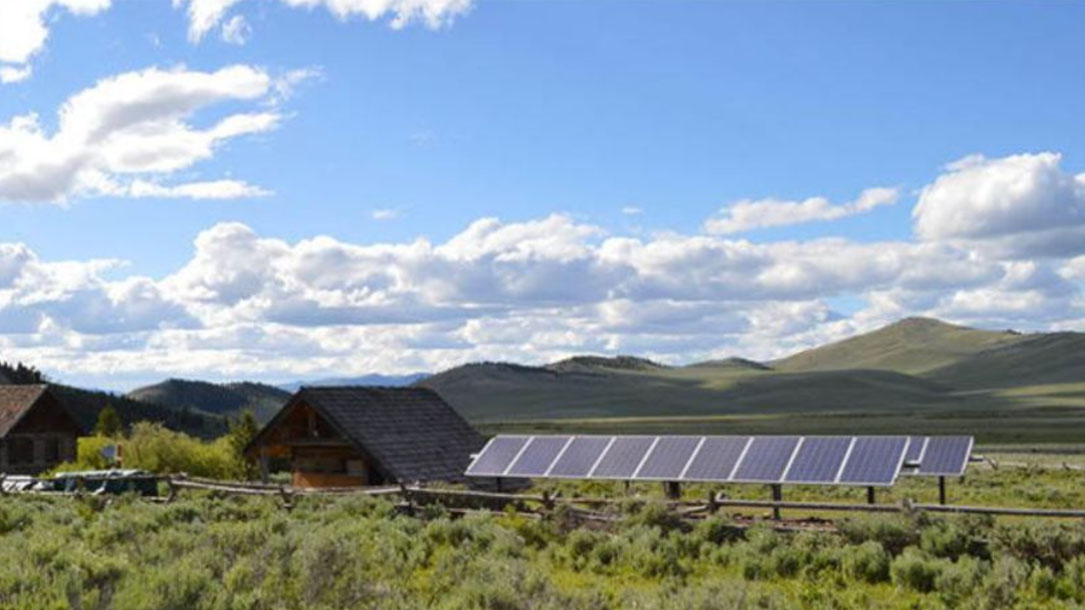
Solar for conservation
“GVLT is proud to have conserved over 45,000 acres across our region. While protecting land from development and fragmentation is the first step, protecting the ecological integrity of our natural resources is equally as important which is why we’re proud to announce a partnership with On Site Energy. What’s the connection between land conservation and solar energy?
Fish need cold, clean water to survive, and rivers need high altitude snow pack to keep them flowing throughout hot summer days. Ranchers and farmers depend on the availability of that water for irrigation, and wildlife depend on the intricate balance of the changing seasons to maintain viable habitats…”












